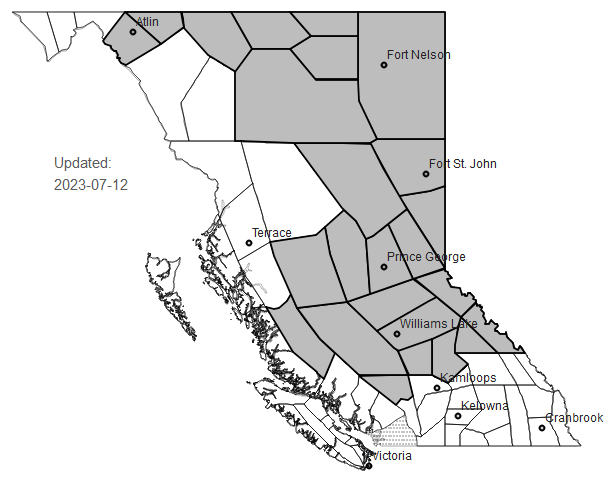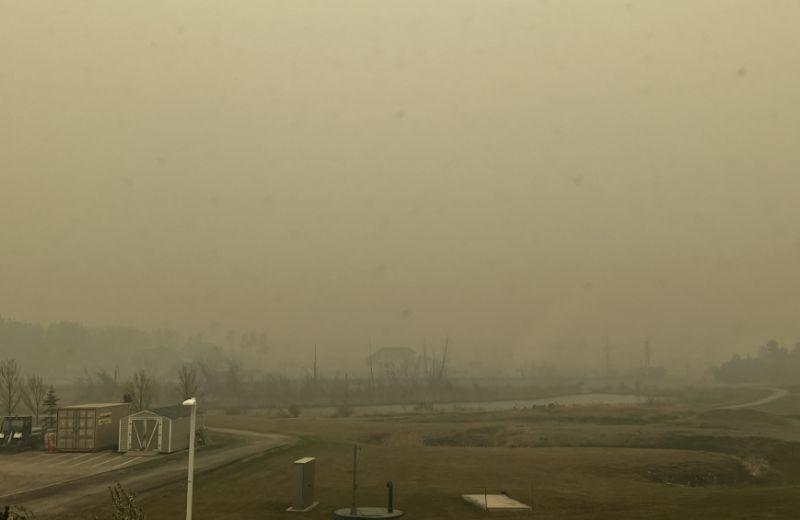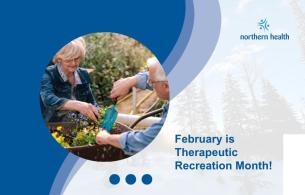The Northern Health region experienced an earlier than normal wildfire smoke season, and given the recent wildfire activity and the weather forecasts, it looks like we should be ready for smoky air through the summer. Early on, I pulled out my portable indoor air cleaner with HEPA filtration and made sure I’m signed up for provincial smoky skies bulletins through the air quality subscription service. This will help me decide when to close all the windows and turn the air cleaners on to filter the smoke indoors. I will also reach out to my friends and family who may need extra assistance during this time, especially if they’re sensitive to the effects of smoke. We can make a positive health impact by limiting our exposure to wildfire smoke, which is made up of a mixture of tiny inhalable particles and chemicals. It’s helpful to know that it’s not an all or nothing approach to protecting our health – just like we know that some physical activity is better than no physical activity, some wildfire smoke protection is better than no protection (and the more the better).

There are a variety of short- and long-term health effects associated with smoke, and we can learn more at the BCCDC Wildfire Smoke website. The BCCDC recommends the following groups of people reduce their exposure to smoke:
- People with pre-existing chronic conditions such as asthma, chronic obstructive pulmonary disease (COPD), heart disease, and diabetes
- People who are pregnant
- Infants and small children
- Elderly
- People who have been diagnosed with a respiratory infection such as COVID-19
Here are some quick tips to limit your exposure to wildfire smoke:
- Use a portable HEPA air cleaner to filter the air in one area of your home.
- Visit public spaces such as community centres, libraries, and shopping malls which tend to have cleaner, cooler indoor air.
- Take it easy and limit outdoor exercise on smoky days because the harder you breathe, the more smoke you inhale.
- Drink lots of water to help reduce inflammation.
- If you are working outdoors, use an N95 respirator that has been properly fitted by occupational health and safety professionals.
- Whenever possible, use air conditioners, heat pumps, evaporative coolers, fans, and window shades to keep your cleaner air space comfortably cool on hot days. Overheating can cause serious health problems.
- If you have a chronic health condition, work with your healthcare providers to create a management plan for smoky conditions. If you use rescue medications, make sure that you have an ample supply at home and carry them with you at all times during the wildfire season.
- Learn where you can find data about local air quality and smoke conditions by consulting this wildfire smoke and air quality factsheet.
For more interesting guidance and information regarding wildfire smoke, check out Environmental Health Scientist, Dr. Sarah Henderson’s wildfire smoke interview on The Dose.
Since wildfire risk is high in the province, please read and share these prevention resources from the BC Wildfire Service.














Comments